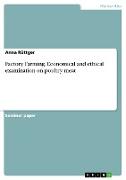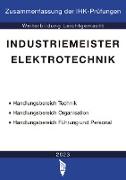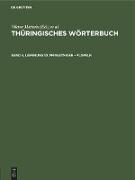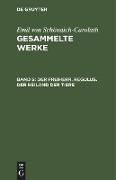- Start
- Factory Farming. Economical and ethical examination on poultry meat
Factory Farming. Economical and ethical examination on poultry meat
Angebote / Angebote:
Seminar paper from the year 2016 in the subject Ethics, grade: 1, 3, University of Applied Sciences Essen, language: English, abstract: The paper will give answers to different issues and analyse these throughout. For example it will introduce the topic with the question why factory farming has occupied such an important significance within today's society and whether this way of production can effectively satisfy the needs of the society. The essence of this paper is the ethical aspect of factory farming.
The most important questions raised will be if such an amount of animals has to die in order that human race is feeding better, and whether the welfare of humanity can ethically justify the suffering of animals. The document is divided into two parts. The first section will explain the term factory farming and deal with the economic component of it. The second part will refer to the ethical aspect of killing massive numbers of animals. It will give an insight into ethical perspectives and analyse the theme of the first part with the help of the ethical view. In this way it is tried to give a complete overview on the subject regarding business ethics in the range of animal husbandry.
Due to increasing prosperity, the requirement for eating meat is rising steadily and today meat consumption is a firmly established component of nourishment in western countries and, increasingly, in developing and emerging countries. Consumption in Japan, for example, has increased more than six fold since 1960. Further, the increase in China is higher than 15 times. The divisive factor is that the consumption of beef, for example, has decreased almost worldwide, while the consumption of chicken has increased noticeable. The USA represents this fact very prominently, as the consumption of beef decreased by 20 per cent between 1975 and 2010, whilst the chicken consumption has tripled. The turning point was in 1990, when there was more chicken consumption than beef consumption for the first time. Considering that this trend can not only be noticed in the USA, but rather worldwide, this document will focus on the meat production of the so-called chickens for fattening and examine the economic and ethical benefit in more detail.
Folgt in ca. 10 Arbeitstagen




